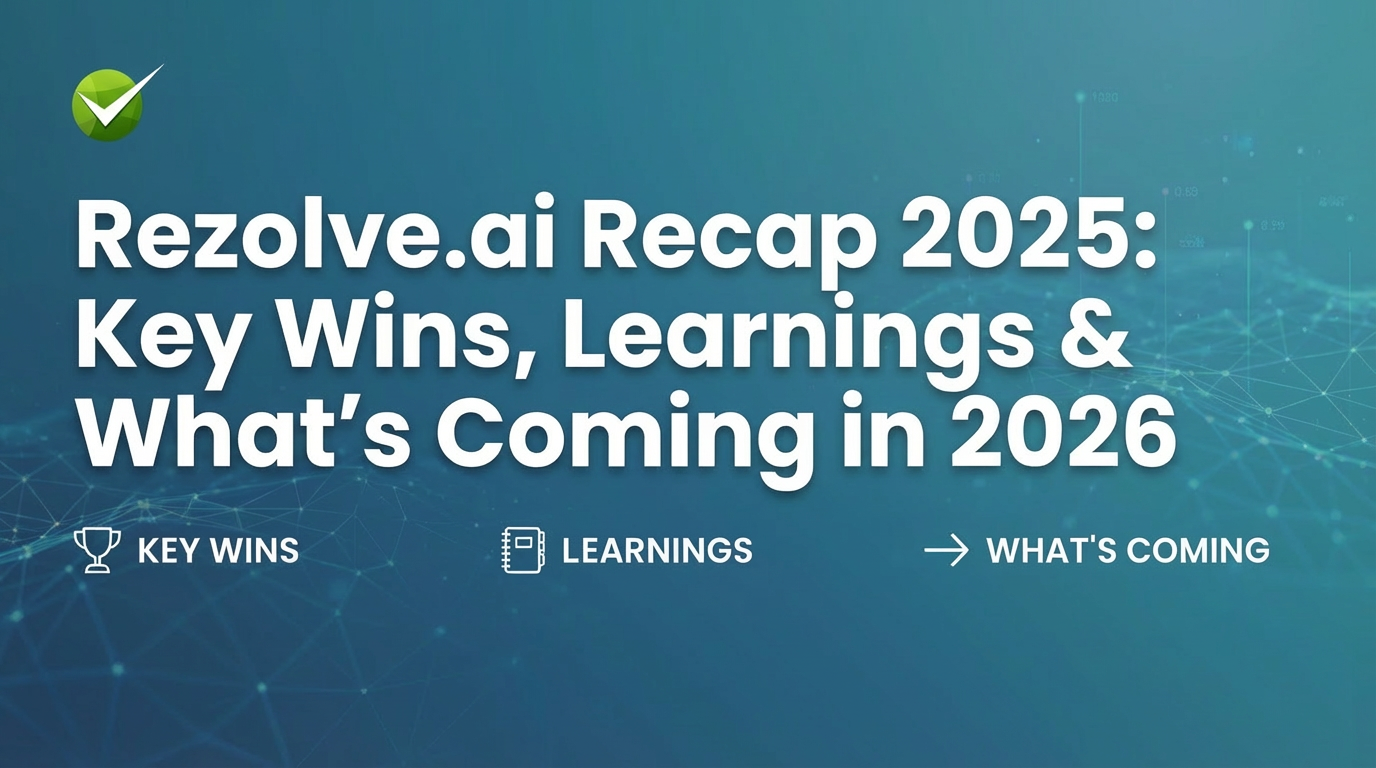The integration of AI with ITSM offers significant improvement in operational efficiency and day-to-day business functions. It helps reduce incident resolution times by up to 50% and increases service desk efficiency by 30%.
Among the top AI tools, AI copilots are the most sought-after. They are designed to assist decision-makers in streamlining workflows like ticket routing and managing common IT service requests that otherwise would consume a lot of time.
It uses GenAI to leverage inaccessible data to elevate service quality within your ITSM and transform the current operations to get work done faster.
It’s like talking to a coworker who understands conversations and takes action to get things done. It uses robust data to trigger actions and converse like humans. In the backend, it orchestrates complex workflows and processes to deliver the desired results.
Let’s dive deeper into how you can use a generative AI copilot for your IT service management and operations.
What is an AI copilot?
An AI copilot is an advanced AI system that assists users with real-time intelligent and contextual support. Unlike traditional tools that require users to follow predefined workflows, AI copilots leverage LLMs (large language models) to create natural, human-like conversation. It boosts productivity and workplace efficiency by offering proactive and dynamic task assistance.
Some of the characteristics of AI copilots are:
- Contextual understanding of the task at hand and interpretation of complex scenarios and user intent to offer solution specific to user’s needs
- Monitoring of activities and systems to offer proactive suggestions on actions
- Handling of various tasks simultaneously and engaging with users in real time, offering instant support
- Learning from past data and interactions and adapting to unique user needs to improve performance
- Bridging the gaps between different systems to enable cohesive operations across multiple environments.
How do AI Copilots differ from other AI technologies?
AI Copilots vs AI Chatbot
AI chatbots were designed to handle simple tasks with predefined queries and automated responses.
AI copilots assist users with complex tasks by offering contextual and proactive support. Unlike chatbots, which have scripted dialogues, copilots are designed to augment human-like capabilities.
AI Copilots vs Virtual agents
Virtual agents can handle more complex tasks than chatbots but operate within predefined boundaries.
They perform specific functions on the user’s behalf, whereas AI copilots engage with users, offering personalized assistance and guidance. They learn from user behavior and automatically generate responses to queries.
This is also the significant difference between traditional AI systems, which function on predefined rules and cannot adapt dynamically to the user’s needs. AI copilots, on the other hand, learn and adapt automatically.
How do AI copilots work?
AI copilots are intelligent systems that boast AI and integration capabilities.
But what AI does a copilot use?
Copilot technology applies GenAI algorithms to advanced technologies like LLM, NLP, and ML, enabling context understanding and many other capabilities like prediction and automation. It predicts user needs while offering customized solutions by creating new data for documentation and forecasting.
Using the extensive integration capabilities, it interacts with your systems seamlessly to fetch data from your existing tools. The GenAI algorithms scoop out information, enable real-time interconnection, and predict solutions.
In IT Support, an AI copilot works as a conversational interface between employees and solution providers. It enables employees to ask questions and find accurate answers. It creates support databases that boost overall productivity, facilitate seamless communication and operation, reduce MTTR, and drive tangible business outcomes.
Benefits of AI copilots
Here are some of the key benefits of having an AI Copilot:
Productivity boost: Repetitive tasks are automated so that agents can concentrate on more intricate and value-adding ones. It takes care of things like ticket routing, service request fulfillment, password resets, etc., thereby reducing the burden on the agents. It also predicts the user's needs and provides troubleshooting steps or relevant knowledge-based articles to save time.
Cost saving: AI copilots improve efficiency by reducing the chances of human errors. You get more done with the same headcount. It also reduces the need for temporary staff, additional training of new hires, and overtime costs.
Real-time assistance: AI copilots offer contextual understanding with real-time assistance. Analyzing the context of incidents, AI copilots guide agents with a quick and reliable resolution process.
Improvement in efficiency: AI copilots are designed to learn from ITSM data and past interactions to make better suggestions. They learn fast from the past issues raised by employees to improve further and reduce the time taken to find solutions. This results in smoother systems and better decisions through continuous improvement.
AI copilot use cases for IT support
Having an AI copilot by your side is like having an intelligent GenAI sidekick who manages queries and streamlines support services. It significantly enhances the IT support experience for both employees and support staff.
Automated incident management
An AI copilot streamlines incident management by automating ticket routing by classifying and assigning tickets to the right agents. It also prioritizes incidents based on factors like impact urgency to address critical issues first.
For example, a network issue reported is automatically categorized as a high-priority incident and routed to the network team. Similarly, AI copilots identify server outages that affect multiple departments as critical and escalate it to the top for rapid resolution.
Self-service solution
An AI copilot enables employees to resolve common IT problems themselves, reducing the burden and involvement of the support team. It also automates troubleshooting by diagnosing and fixing issues like software installation issues. It also offers an intuitive interface that makes it seamless for employees to use and find solutions to their problems.
For example, AI copilots can diagnose network connectivity problems and help employees with the troubleshooting process, check network settings, verify VPN credentials, and identify any potential configuration errors.
Knowledge management
An AI copilot enhances knowledge management by maintaining and disseminating up-to-date information. It automatically updates the knowledge base with information and data from ongoing incidents and solutions. It fetches the relevant information based on context to support agents with specific queries and accurate resolutions.
For example, AI copilots identify the workaround for recurring software bugs and update the knowledge base with instructions for future reference.
Predictive maintenance
AI copilots use predictive analytics to identify potential issues and enable proactive maintenance. It analyzes system logs and performance metrics to detect early signs of issues, performs routine system maintenance, and checks to recommend maintenance activities.
For example, an AI copilot is capable of identifying unusual activity patterns in the disk that suggest hardware failure and alerts the team to take action to avoid disruption immediately.
Workflow automation
AI copilots automate and efficiently manage complex workflows to enforce error-free IT support operations. It streamlines approval workflows for IT requests, improving turnaround times and reducing delays.
For example, an AI copilot routes requests for new software or laptops to the appropriate manager for approval and tracks its status. Similarly, it develops workflows to generate incident response and change management workflows automatically.
Best practices for selecting AI copilots
Choosing the right AI copilot requires you to carefully consider the features it offers specifically to support your ITSM.
Here are a few that should always be considered:
Understand your needs first
Before diving into features, clearly define your goals by answering the following questions:
- Who will an AI Copliot assist? This can include the employees who need self-service support and the support staff who offer resolution or both.
- What are the pain points of these users?
- What specific functionalities are essential for addressing the pain points?
Compatibility with existing tools
Even though modern AI copilots are designed to integrate seamlessly with your existing tools, especially ITSM platforms, ensure the AI copilot you choose seamlessly integrates with your existing infrastructure. This makes pulling data from your tools easy for workflow automation, process streamlining, and predictive analytics.
An AI copilot that supports APIs make integration smooth and reduce many custom development requirements. They minimize disruptions and any significant modifications to connect with your systems.
Security considerations
Security is paramount in the modern IT environment when integrating AI copilot because it handles sensitive data. Ensure that the AI copilot adheres to industry standard protocols and compliance regulations.
It should employ robust encryption for in-transit and at-rest data to protect it from unauthorized access. It should comply with regulations like GDPR, CCPA, or HIPAA to manage data responsibly. Review a tool's security practices to ensure it aligns with your organization’s security standards.
Scalability and customization
An AI copilot should adapt and evolve as your organization scales. Additionally, it should be customizable to fit your workflows for maximum effectiveness. It should handle the increasing number of interactions without disruptions and manage large datasets and complex workflows easily.
Look for customization options like tailored workflows, integrations, and response capabilities to optimize it for your business.
Vendor assessment
Review vendor history and experience in deploying AI copilots. Check customer reviews, especially on customer forums, to access their customer support and training services.
Continuous learning and improvement
An AI copilot software boasts of the ability to continuously learn and upgrade. Look for tools that leverage advanced ML techniques to refine the tool's functionality and continuously improve its performance. Another important point to remember is to check for a mechanism for collecting and incorporating feedback to improve the tool.
The future with AI copilots
AI copilots are making significant improvements in IT service management. Whether it is about integrating AI into every business process or automating time-consuming and complex operational tasks, they perform with incredible accuracy, speed, and efficiency.
Real-time assistance in IT service delivery and IT helpdesk accelerates the resolution time, enhancing productivity and providing deep insights and data analysis, which enables data-driven decision-making.
Along with this, they deliver high ROI and cost efficiency, which makes them a wise investment for long-term sustainable growth.
For instance, Rezolve.ai brings:

It operates within the familiar interface of MS Teams and offers 24/7 365-day support and advanced features to support your modern-day ITSM needs.

530x280.avif)




.webp)




.jpg)

.png)








.png)